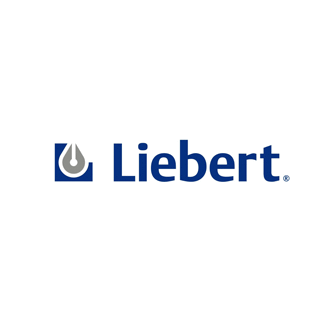
Indoor Air Quality Services in Wake Forest, NC
Enhance Your Indoor Air Quality
For better or for worse, modern life is spent largely indoors. Because so much of our time is spent inside of buildings, the air quality of those buildings has a significant impact on our overall well-being.
Unfortunately, studies have found that air inside of a home or commercial building can be as much as five times as polluted as the air outside.
When you are looking for a way to improve the indoor air quality in your home, Mechanical HVAC Services is here to help with our professional indoor air quality services in Wake Forest. We can work with you to determine the perfect system that will suit your needs and achieve your goals.
Our indoor air quality systems in Wake Forest include:
Call (919) 912-5350 or contact us online to schedule quick & comprehensive indoor air quality service in Wake Forest, NC, or the surrounding areas today!
Effective Strategies to Improve Indoor Air Quality
Here are a few simple ways you can help improve the air quality in your home:
- Change AC filters
- Clean house
- Check air duct
- Use an air purifier
- Allow fresh air in
- Keep carpets and rugs clean
- Reduce humidity in your home
Recognizing the Signs of Poor Indoor Air Quality
Poor indoor air quality can have various signs, and it's important to be aware of these indicators to ensure a healthy living environment.
Some common signs of poor indoor air quality include:
- Respiratory Issues: Persistent respiratory problems such as coughing, sneezing, shortness of breath, or aggravated asthma symptoms may indicate poor air quality.
- Eye, Nose, or Throat Irritation: Irritation of the eyes, nose, or throat can be a result of exposure to pollutants in the air, such as dust, mold, or volatile organic compounds (VOCs).
- Fatigue and Headaches: Poor air quality can contribute to feelings of fatigue and headaches. Breathing in contaminated air may affect oxygen levels in the body, leading to tiredness and discomfort.
- Odors: Unpleasant or unusual odors in your home, such as musty smells, chemical odors, or persistent cooking smells, may suggest the presence of pollutants.
- Visible Mold or Mildew: The presence of mold or mildew on surfaces is a clear sign of excess moisture and poor air quality. Mold spores can become airborne and negatively impact indoor air.
- Dust Accumulation: Excessive dust buildup on surfaces may indicate poor air quality. Dust can harbor allergens, pollutants, and other harmful particles.
- Increased Allergy Symptoms: If you notice an increase in allergy symptoms like sneezing, congestion, or skin rashes, it may be linked to poor indoor air quality.
- Humidity Issues: High humidity levels can contribute to mold growth and dust mites. On the other hand, low humidity levels can lead to dry skin and respiratory discomfort.
- Inadequate Ventilation: Stale or stuffy air can result from inadequate ventilation. Proper ventilation is crucial for maintaining good indoor air quality by exchanging indoor and outdoor air.
- Carbon Monoxide (CO) Presence: CO is a colorless and odorless gas that can be produced by faulty heating systems, stoves, or appliances. Symptoms of CO exposure include headaches, dizziness, nausea, and confusion.
If you suspect poor indoor air quality, it's advisable to identify and address the potential sources of contamination. This may involve improving ventilation, reducing humidity, using air purifiers, and addressing specific sources of pollutants.
In severe cases, consulting with a professional indoor air quality service may be necessary to assess and improve the overall air quality in your home or workplace.
```
What are the Benefits of Fresh-Aire UV?
One of the most exciting systems we have available is the Fresh-Aire UV. This system utilizes an effective UVC germicidal lamp which helps to kill biological contaminants such as bacteria, mold, and even viruses. It is generally agreed upon that UC lamp systems like these are an excellent complementary measure to accompany filtration.
Filters, while highly effective at removing particulate matter from the air, are generally too large to reasonably stop the flow of microorganisms. By adding a system with a UV lamp, you are helping to minimize the circulation of unwanted contaminants and contribute to a healthier home!
Common Culprits of Indoor Air Pollution
Because they are closed environments, indoor spaces have a difficult time dissipating pollutants without help. Once something is introduced into the air, it tends to stay there for quite some time.
Some of the most common pollutants in indoor spaces include:
Particulates such as dirt, dust, pet dander, and pollen: Some of the most common pollutants in the average home, these are also extremely common irritants. Many of these are naturally-occurring but were not meant to be continuously circulated throughout the space. Those with existing respiratory issues may find that their symptoms are greatly aggravated in homes with these pollutants.
Cleaning solutions: The toxic chemicals in some cleaning solvents can be damaging over time and may linger in the air long after their purpose is served.
Household staples: Things like paint, hairspray, perfumes, and pesticides can all negatively impact a home’s indoor air quality.
Smoke and combustibles: Anything intended to burn, such as fireplaces, gas stoves, incense, candles, and even cigarettes can release harmful chemicals into the air.
Construction materials: Certain types of varnish, treated wood, primer, glue, caulk, and insulation can all sometimes release pollutants over time.
Let Mechanical HVAC Services Help
Our Wake Forest indoor air quality experts are here to provide you with skilled assistance whether you are just looking to freshen up your home or you want to make things easier for a loved one with respiratory problems.
Schedule reliable indoor air quality service in Wake Forest, NC, or the surrounding areas by calling (919) 912-5350 or completing a contact form online today!

















